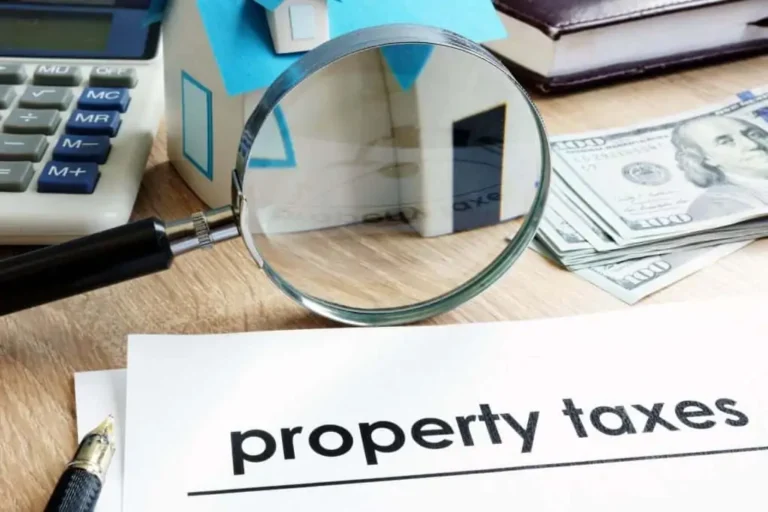Commercial Property Tax : What Renters Need to Know

Navigating the realm of commercial property taxes can be complex, especially when it comes to understanding who bears the responsibility: you or your landlord? In this blog post, we delve into everything you need to know about commercial property taxes:
- Definition and purpose
- Responsibility for payment
- Impact on your business operations
- Strategies to mitigate their financial implications
Whether you’re a new entrepreneur or a seasoned commercial tenant, gain insights into managing this crucial aspect of renting commercial space.”
Property tax is a levy imposed by local governments on real estate properties, crucial for funding municipal services and infrastructure in Pakistan. This tax is calculated based on the assessed value of the property and varies depending on its location and type. For commercial renters, understanding and managing property tax payments is essential to comply with legal obligations and manage financial responsibilities effectively.
Step-by-Step Guide for Commercial Renters
If you’re a commercial renter in Pakistan responsible for property tax payments, follow these steps to ensure smooth and accurate transactions:
Confirm Your Tax Obligation: Review your lease agreement to determine if you are responsible for property tax payments or if it’s the landlord’s responsibility. Seek clarification from your landlord or legal advisor if needed.
Obtain Property Valuation: Contact the local municipal office to obtain the current assessed value of the rented property. Ensure the valuation is up-to-date and accurately reflects the property’s condition.
Calculate Property Tax Due: Use the applicable tax rate provided by the local tax department to calculate the property tax amount owed. Include any additional charges or fees that may apply.
Verify Calculation: Double-check your calculations for accuracy. Utilize online calculators or seek assistance from a tax advisor to ensure the amount is correct.
Choose Payment Method: Select a convenient payment method accepted by the local tax department, such as online banking, bank transfers, or in-person payments at designated offices.
Make the Payment: Proceed with the payment using your chosen method. Use official channels to avoid scams and retain transaction details for record-keeping.
Receive Payment Receipt: Upon successful payment, obtain an official receipt either online or in-person. Keep this receipt safe as proof of payment.
Update Financial Records: Update your financial records with details of the property tax payment, including the date, amount paid, and receipt copy. This helps in tracking expenses and managing financial documentation.
Stay Informed About Due Dates: Note the annual due date for property tax payments to ensure timely compliance. Subscribe to notifications or reminders offered by the tax department for convenience.
Seek Professional Advice: Consult with a tax professional or legal advisor if you encounter complexities or require clarification regarding property tax responsibilities.
Benefits and Considerations
Here are key benefits and considerations for commercial renters paying property tax directly:
| Aspect | Benefits | Considerations |
|---|---|---|
| Control | Ensures timely payment and verification of property tax. | Adds financial responsibility to the renter’s obligations. |
| Financial Management | Facilitates better budgeting by incorporating tax into monthly expenses. | Requires upfront financial planning to meet tax obligations. |
| Transparency | Provides clarity on tax calculations and promotes financial transparency. | No significant drawbacks identified. |
| Administrative Burden | Enables direct communication with tax offices for accurate submissions. | Increases administrative workload and requires understanding of tax procedures. |
| Lease Negotiations | Offers leverage during lease negotiations and encourages thorough agreement review. | May complicate lease agreements and necessitate legal assistance. |
| Legal and Compliance | Ensures compliance with local tax laws and regulations. | Places legal compliance responsibility on the renter. |
| Cost Savings | Potential savings if rent negotiations consider tax responsibilities. | Risk of financial strain if tax rates increase unexpectedly. |
Reducing Property Tax Impact
To mitigate property tax impact, consider these strategies:
- Negotiate Lease Terms: Clarify tax responsibilities in lease agreements.
- Review Property Tax Bills: Understand costs passed on from landlords.
- Appeal Property Assessments: Seek reductions based on property improvements.
- Seek Legal Advice: Ensure lease terms are clear and compliant.
Navigating property tax as a commercial renter in Pakistan can be straightforward with proper understanding and proactive management. Stay informed and adhere to legal requirements to manage your financial obligations effectively.
Frequently Asked Questions about Property and Capital Gains Taxes
Q: Who typically pays property tax? A: Normally, the landlord pays property tax, though lease terms can specify otherwise.
Q: How is property tax determined? A: Property tax is calculated based on the property’s assessed value, considering factors like size, location, and condition, assessed by local tax assessors.
Q: When are property taxes due? A: Property taxes are typically due annually, with specific due dates varying by jurisdiction.
Q: What is capital gains tax? A: Capital gains tax is levied on profits from asset sales, such as property.
Q: Who pays capital gains tax on property? A: The seller of the property is responsible for paying capital gains tax.
Q: How is capital gains tax computed? A: Capital gains tax is calculated using the difference between the property’s sale price and its cost basis, which includes the purchase price plus any capital improvements.

